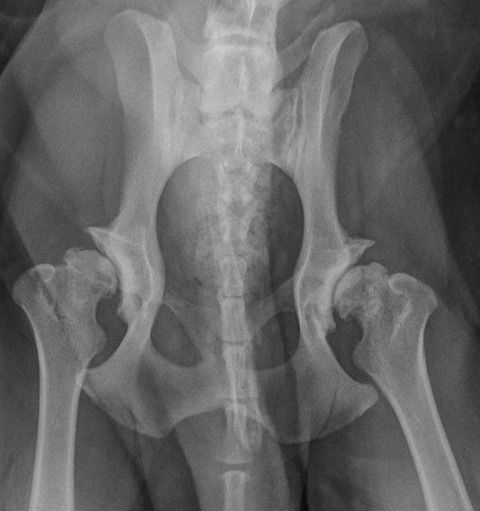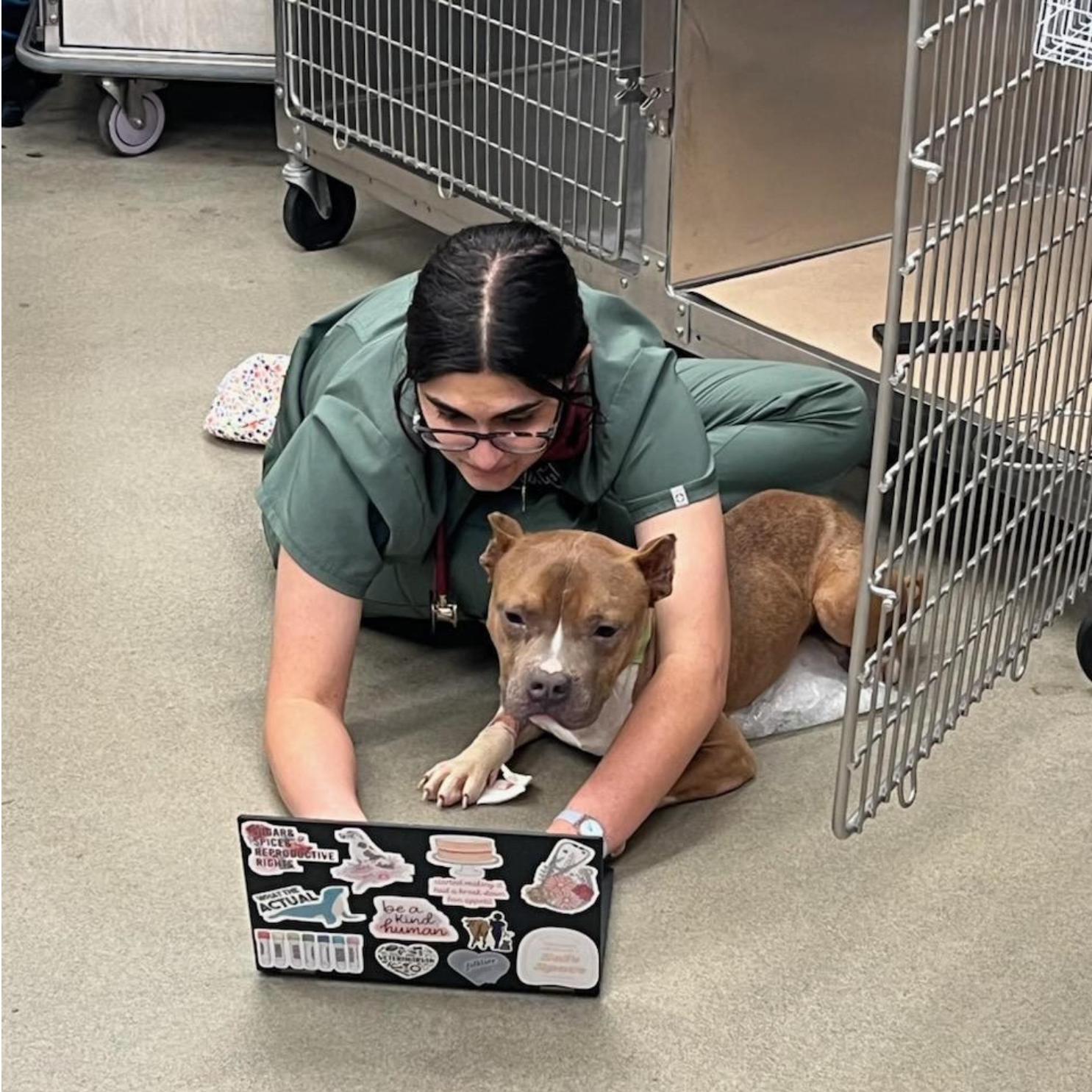Osteoarthritis in Dogs

Osteoarthritis (OA) is a common and painful disease that affects many dogs, particularly as they get older. Here’s what you need to know about the causes, symptoms and treatment options available to help your dog live a comfortable and active life.
What is OA in dogs?
Also known arthritis and degenerative joint disease, OA is a condition that causes inflammation and deterioration of the joints. It tends to affect older dogs, but younger dogs can also develop OA, especially if they have had joint injuries in the past, have congenital joint conditions (like hip or elbow dysplasia or patellar luxation) or are predisposed to the condition because of their breed.
What causes OA in dogs?
Several factors can contribute to the development of OA in dogs. As dogs age, the cartilage in their joints naturally wears down, which can lead to OA. Certain dogs have conformational issues that predispose them to developing OA. Certain breeds are over represented, such as; Labrador retrievers, German shepherds, golden retrievers and Great Danes.
Other factors can play a big part. Excess weight puts additional stress on a dog’s joints, which can speed up cartilage degeneration. Trauma to the joints, such as fractures or ligament tears, can also lead to the early onset of OA.
What are the signs of OA in dogs?
Spotting the symptoms of arthritis in your dog can be helpful for early diagnosis and ongoing management. Common signs include:
- Stiffness: Particularly noticeable after rest or in cold weather.
- Limping: Your dog might favor one or more limbs.
- Reluctance to move: Hesitance to jump, climb stairs or be physically active.
- Pain: Signs of discomfort when touched or handled.
- Changes in behavior: Irritability, lethargy or changes in appetite.
- Difficulty getting up: Especially after lying down for a period of time.
If you spot any of these symptoms in your dog, seek a full-body examination from us.
How do you diagnose OA in dogs?
We can diagnose OA through a combination of physical examinations, observations and diagnostic imaging. X-rays lets us assess joint damage and rule out any other potential causes of the signs. In some cases, advanced imaging techniques at a referral center like MRIs or CT scans might be necessary to get a more detailed view of the joints.
How do we treat OA in dogs?
Managing arthritis in dogs can include lifestyle changes, medications, and supplements. Here’s a closer look at some common treatment options:
Exercise
Regular, low-impact exercise can help maintain joint flexibility and muscle strength in dogs living with OA. Swimming and controlled leash walks can help keep your dog active without placing too much strain on their joints. Be sure to avoid high-intensity activities, like running or jumping, which can exacerbate joint pain.
Drugs
Non-steroidal anti-inflammatory drugs (NSAIDs) are prescribed to reduce inflammation and alleviate pain. Meloxicam, carprofen and firocoxib are medications that can help improve your dog’s mobility and comfort. Additional medications can be used for OA including gabapentin and amantadine.
Monoclonal antibodies, such as LibrelaTM, are also used to manage pain due to OA in dogs. This medication targets pain at the pain receptors and has a high safety profile, making it a great option for older patients.
Oral supplements
Supplements like glucosamine, chondroitin sulphate and omega-3 fatty acids may be recommended to support your dog’s joint health and reduce inflammation. While evidence of their effectiveness varies, many pet owners report improvements in their dog’s condition after regular use.
Injectable supplements
Pentosan polysulphate (PPS) is an injectable medication that protects joint cartilage and reduces inflammation. It’s often used in tandem with other treatments to manage arthritis symptoms over the long term.
Weight control
Excess weight puts additional stress on already compromised joints and also increases inflammation within the joints. So, putting your dog on a well-balanced diet and feeding them controlled portion sizes, combined with regular low impact exercise, can help them maintain a healthy weight. We might recommend a prescription diet designed for weight management in arthritic dogs.
How to help a dog with arthritis at home?
Here are a few ways you can make life easier and more comfortable for your dog at home:
- Soft bedding: A supportive, orthopedic bed can reduce pressure on your dog’s joints while they sleep.
- Use ramps or steps: These can help your dog climb onto furniture or into your car without jumping.
- Keep them warm: Chilly winters and harsh weather can worsen OA signs, so make sure your dog can stay warm.
- Gentle massage: Massaging your dog’s muscles around the affected joints can help reduce stiffness and improve circulation. Sometimes range of motion and other specific exercises are recommended to help maintain good muscle condition around affected joints to help support arthritic joints.
Are there any cures for OA in dogs?
While there’s no cure for OA in dogs, the condition can be well managed with the right combination of treatments and lifestyle adjustments. With proper care, many dogs with OA can continue to lead active and fulfilling lives. Regular veterinary check-ups are essential to monitor the progression of the disease and adjust the treatment plan as needed.


